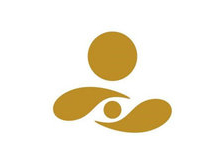Baku, Azerbaijan, Oct. 23
By Maksim Tsurkov - Trend:
The budget of the State Oil Fund of Azerbaijan (SOFAZ) for 2015 will be deficit-ridden due to the long decline in world oil prices, SOFAZ told Trend Oct. 23.
While drawing up SOFAZ budget-2015, the basic parameters of the state budget were taken as a basis. The oil price was set at $90 per barrel, the source said.
"Taking into account the oil price at $50 a barrel, SOFAZ's total income, including the proceeds from the oil and gas sale are predicted at 7.4 billion manat till late 2015, which is 28 percent less than SOFAZ income approved for this year," SOFAZ said.
As for the SOFAZ budget expenditure, proceeding from the fact that the government plans to cut transfers to the state budget up to 8.13 billion manat in 2015, the total expenditure, including the project financing and operating expenses of SOFAZ will amount to 9.6 billion manat or by 19 percent less than the approved budget expenditures.
"Thus, given an oil price of $50 per barrel, excluding the currency exchange rate differences included in the investment portfolio of SOFAZ, the State Oil Fund's budget deficit by late 2015 is forecasted at 2.2 billion manats," said the fund.
In accordance with the State Oil Fund budget for 2015, SOFAZ revenues are estimated at 10.25 billion manats, expenses - 11.81 billion manats. In the structure of expenses of the fund, transfers to the state budget of the country were provided in the amount of 10.39 billion manats.
The fall in oil prices on the world market began since September 2014. Experts predict that the price of oil on the world market will remain at the current level during the next two years.
The International Monetary Fund (IMF) expects world oil prices to amount to $52 per barrel at late 2015 and $63 per barrel in 2016. At the same time, according to the IMF, the break-even price of oil for Azerbaijan in 2016 will amount to $60 per barrel, while in 2015 this figure amounts to $75, and in 2014 it exceeded $90 per barrel.
At the same time, the World Bank (WB) lowered its 2015 forecast for crude oil prices from $57 per barrel to $52 per barrel. The revised forecast reflects a further slowing in global economic performance, high current oil inventories, and expectations that Iranian oil exports will rise after the lifting of international sanctions.
This is while the World Bank has lowered the forecasts for oil prices for 2016 from $61 to $51 per barrel.
Energy prices are expected to average 43 percent lower in 2015 than in 2014, according to the WB experts.
Within several months, Iran could potentially reach a pre-sanctions level of 3.6 million barrels per day, according to the report.I n addition, Iran could immediately begin exporting from its 40 million barrels of floating storage of oil, said the WB.
Given that Iran has the largest known gas global reserve (18 percent of the world total), it has the potential to produce and export a significant volume of natural gas over the long term, said the report.
Moreover, the WB experts believe that downside risks in world oil prices include higher-than-expected OPEC production and continuing falling costs along with improved productivity of the US shale oil industry.
The State Oil Fund was created in 1999 and its assets were equal to $271 million that time.
The assets of SOFAZ decreased by 3.56 percent and exceeded $35.783 billion as of July 1, 2015, compared to over $37.104 billion in early 2015.
Under SOFAZ's regulations, its funds may be used for the construction and reconstruction of strategically important infrastructure facilities, as well as solving important national problems.
The main goals of the State Oil Fund include: accumulation of resources and the placement of the fund's assets abroad in order to minimize the negative affect on the economy, the prevention of "Dutch disease" to some extent, promotion of resource accumulation for future generations and support of current social and economic processes in Azerbaijan.
Edited by CN
---
Follow the author on Twitter: @MaksimTsurkov






